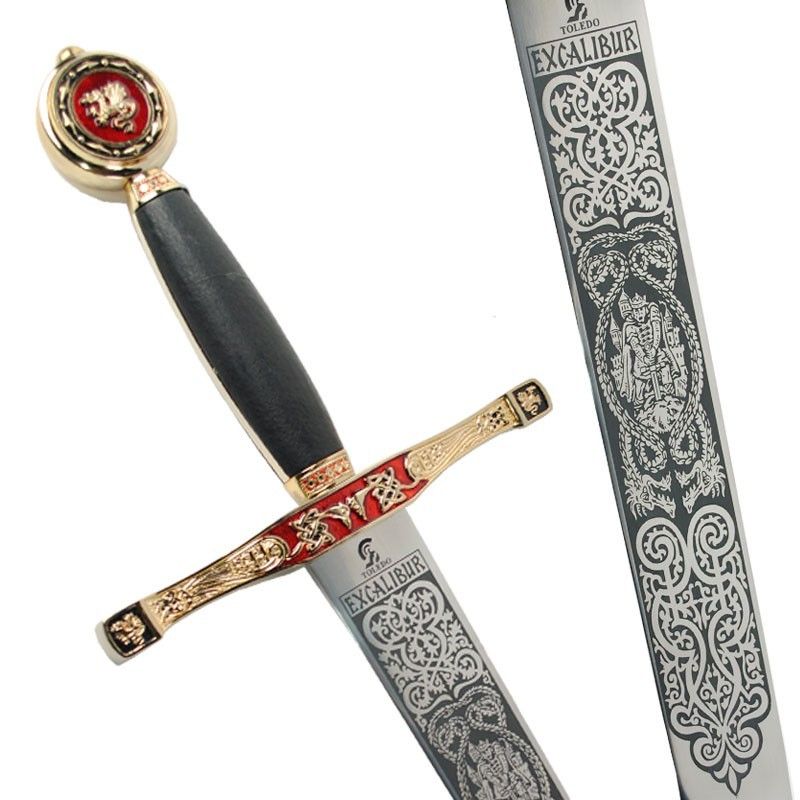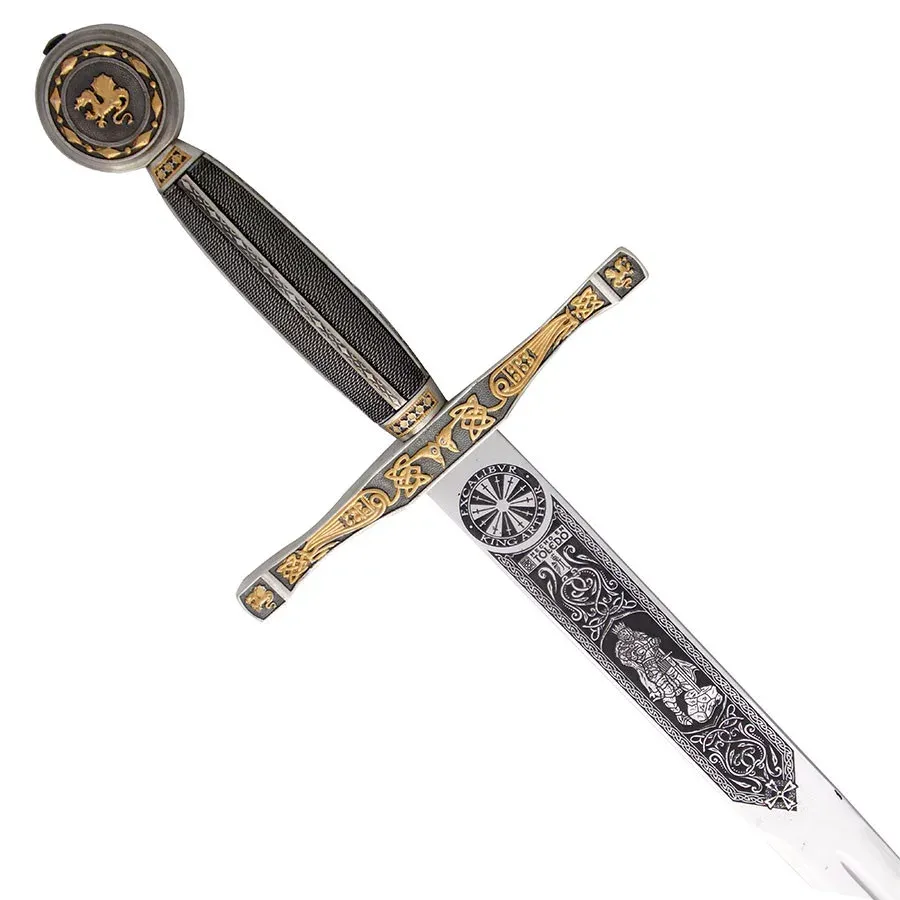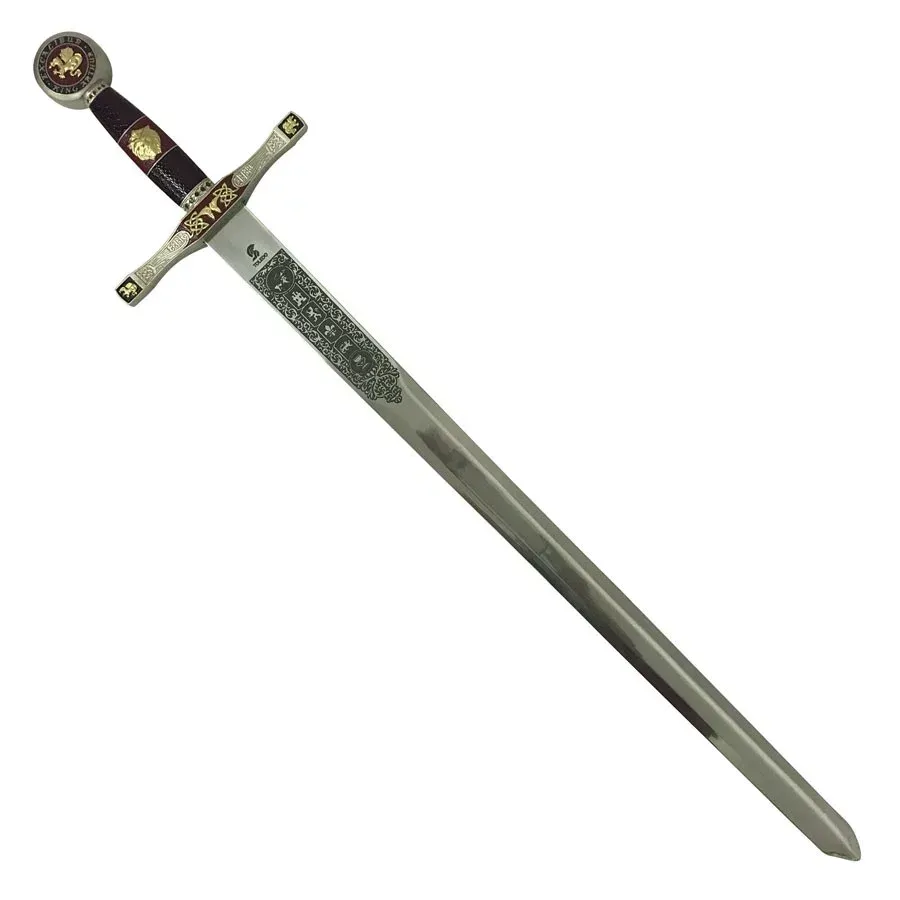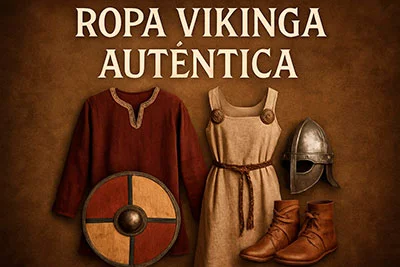Whose Sword Was Excalibur?
Excalibur Sword is one of the most iconic artifacts in literary and folkloric traditions, deeply tied to the figure of King Arthur and Arthurian legends. Often regarded as a symbol of power, legitimacy, and transcendence, its story is shrouded in mystery and has evolved over centuries through oral storytelling, medieval texts, and modern reinterpretations.

Whose Sword Was Excalibur?
King Arthur and the Legend of Excalibur
The Excalibur sword is primarily associated with the legendary King Arthur, who led the Knights of the Round Table in their crusade for justice and the protection of the kingdom of Camelot. According to the most well-known literary traditions, Arthur was not only chosen to wield this grand weapon, but his bond with it marked his destiny as a legitimate sovereign.
Excalibur should not be confused with the "Sword in the Stone," although in some versions both swords are connected. The most widespread legend says that Excalibur was given to Arthur by the Lady of the Lake, a mystical and immortal water dweller, who emerged to deliver the sword as a symbol of Arthur's divine legitimacy.
How Did Arthur Obtain Excalibur?
There are several versions of how Arthur came to possess Excalibur. Among the most accepted narratives are:
- Merlin, the wise mentor and wizard, forged Excalibur on the magical island of Avalon. According to this tale, the sword was reserved for a ruler worthy of leading and protecting their people.
- In an alternate version, Arthur received Excalibur after losing his original sword in a duel against Sir Pellinore. The replacement of the weapon marked an important moment in the consolidation of his role as a leader.
Both stories align in associating the delivery of Excalibur with mythical and supernatural approval, reinforcing the idea that Arthur was the chosen and rightful king.

Magical Properties of Excalibur
Excalibur was not just an ordinary sword; the stories tell of magical characteristics that made it extraordinary. Among the most notable properties are:
- Superior cutting ability: It was said that Excalibur could cut through any material, even the most resistant, making it an unbeatable weapon.
- Invulnerability for its bearer: The bearer of Excalibur benefited from magical invincibility, rendering Arthur an almost indestructible warrior.
- The magical scabbard: Beyond the sword itself, Excalibur’s scabbard was of incalculable value, as it had healing properties and protected against mortal wounds.
The Disappearance of the Sword
Like many legends, the story of Excalibur concludes with a mystical ending. After Arthur's final battle at Camlann, where he faced his son Mordred, Arthur was mortally wounded. On his deathbed, he asked one of his loyal knights, generally identified as Sir Bedivere, to return Excalibur to the lake from which it had emerged.
After throwing the sword into the water, the legend tells of how a feminine hand, cloaked in white silk, emerged from the lake to seize the sword before disappearing into the depths. This act marked Excalibur's return to a realm beyond the human, preserving its mythical nature.

Cultural Impact and Legacy
The myth of Excalibur transcends time and has left an indelible mark on popular culture. It has been represented in countless texts, films, series, video games, and art, becoming a symbol of power and justice.
Although there is no archaeological evidence of its real existence, Excalibur continues to fuel the collective imagination as an emblem of heroism and nobility linked to the myth of King Arthur. Its presence in medieval accounts and its reinterpretation in modern literature have ensured its place as one of the most recognizable elements of Western mythology.
| Attribute | Description |
| Giver | Lady of the Lake |
| Properties | Unbeatable cutting, invulnerability, healing scabbard |
| Final fate | Returned to the Lake (guarded by the Lady of the Lake) |
| Legacy | Symbol of heroism and justice |
The legend of Excalibur is not just a tale of sword and magic but a narrative that encapsulates universal values such as legitimacy, bravery, and sacrifice. Much like King Arthur, its legacy endures the passage of time, reminding us of the timeless resonance of great legendary stories.



